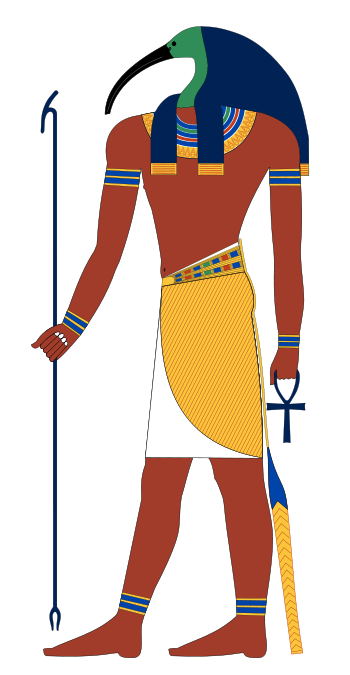 |
| Thoth gave Egyptian Priests an excuse to practice medicine |
Legend has it that sometime around 2,700 years before the birth of Christ, Thoth communicated with a priest, giving him all the wisdom of the gods. This priest learned about mathematics, chemistry, engineering, architecture, medicine and language. He also learned about laws and religious practices. (1, page 6)(2, page 19)(3) (4, page 14)
Thoth also taught this priest how to write, and he instructed him how to carve words onto pillars of stone. The priest then went on to communicate all the medical wisdom he learned in a collection of 42 books, which the priests referred to as the "Sacred Books." Since the ancient Greeks referred to Thoth as Hermes Trismegistus, these books became known as the Hermetic texts. (The ancient Romans referred to him as Mercury).(4, page 14)(5, page 24)
Medical historian Pierre-Victor Renouard said that no one knows for sure when he lived, nor whether he was an actual person. It may be that all works on religion and science were simply attributed to Thoth, and therefore bore his sign or signature. This, Renouard said, may have been done on purpose by Egyptian priests to prevent priestly wisdom from becoming individualized. (6, page 28)
So while some think Thoth himself wrote the books, other speculate it was Imhotep, the most famous non-Pharaoh in ancient Egypt. He was the famous scribe, architect, physician, and vizier to King Djoser, who lived around 2650-2600 B.C. He was so famous, and his legend so huge, that he would go on to become an Egyptian god of medicine in his own right. So it only makes sense that, as time elapsed, he became the famous priest who obtained all the wisdom of Thoth, and thus the wisdom of the gods. (1, page 6)
Various opinions formed, all based on incomplete information, as to who this priest was. Some speculated it was one of Bacchus, Zoroaster, Osiris, Isis, Searpis, Orus, Apollo, or even Shem, son of Noah. (4, page 28)
Along with the author, there are also many theories as to the Hermetic Books. Did they really exist? If so, who really wrote them? Chances are that it was not one priest but various priests over many years. How many years? We may never know, although various theories have arisen.
References: See "2600 B.C.: Hermetic Books allow medicine to flourish in Egypt."

No comments:
Post a Comment